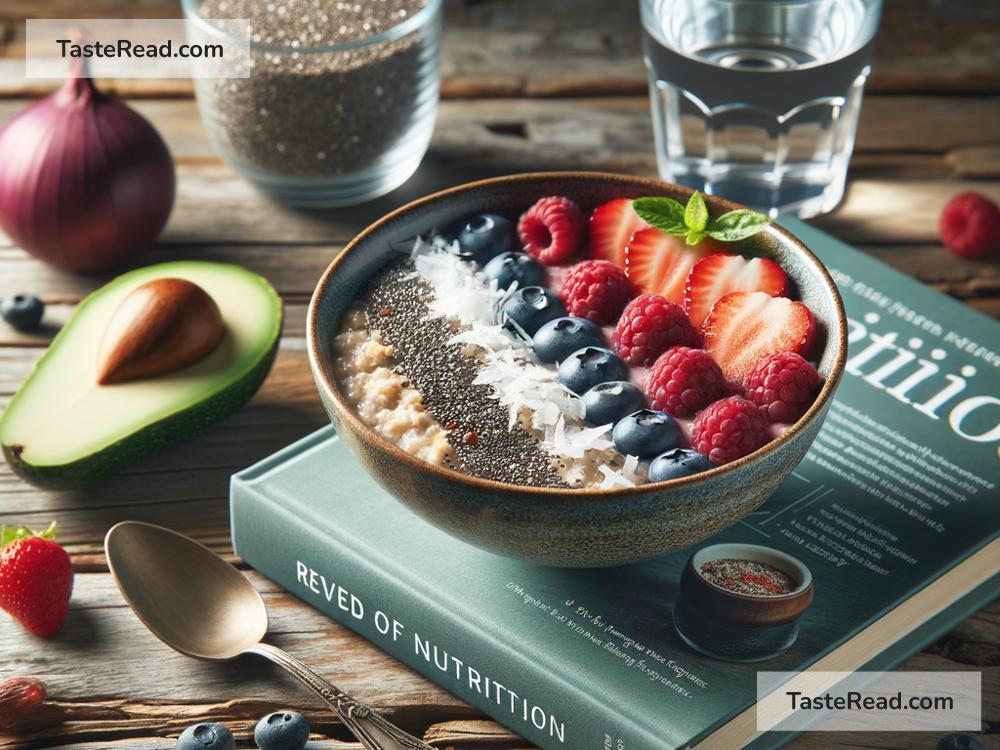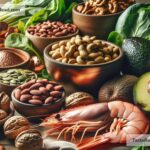The Role of Fiber in Digestive Health
When it comes to staying healthy, many people forget about their digestive system. Yet, healthy digestion is the backbone of overall well-being, and one key to keeping your gut happy is eating enough fiber. Fiber plays a vital role in keeping your digestive system running smoothly, protecting against illness, and supporting a balanced lifestyle. In this article, we’ll explore what fiber is, how it benefits your body, and how to make sure you’re getting enough in your diet.
What Is Fiber?
Fiber is a type of carbohydrate found in plant-based foods. Unlike other carbs such as sugar or starch, fiber isn’t broken down by your digestive enzymes. This means fiber passes through most of your digestive system relatively intact. Instead of providing energy, its main purpose is to promote healthy digestion and improve the way your body processes food.
There are two main types of fiber: soluble fiber and insoluble fiber.
-
Soluble Fiber dissolves in water and creates a gel-like substance. This type of fiber helps slow digestion and can lower cholesterol and blood sugar levels. Foods rich in soluble fiber include oats, fruits like apples and oranges, and legumes like lentils or beans.
-
Insoluble Fiber doesn’t dissolve in water and moves through the digestive tract mostly unchanged. It acts as a “bulking agent,” adding volume to stool to prevent constipation. Insoluble fiber can be found in foods like whole grains, nuts, seeds, and vegetables, especially those with tough skins such as carrots or cucumbers.
Both types of fiber are important, and a healthy diet should include a mix of both.
How Does Fiber Help Your Digestive System?
Fiber works wonders for your digestive health. Here are some ways it helps keep your gut in top shape:
-
Prevents Constipation
Insoluble fiber is like a broom cleaning out your digestive tract—it helps food and waste move through your system more efficiently. If you’ve ever struggled with constipation, fiber can soften stool and make it easier to pass. This reduces discomfort and keeps your bowel movements regular. -
Supports Gut Health
Soluble fiber plays a role in feeding your gut bacteria, also known as your microbiome. Your gut is home to trillions of tiny microorganisms, most of which are beneficial to your health. These bacteria thrive on soluble fiber, fermenting it into short-chain fatty acids that improve colon health. A well-fed microbiome improves digestion, supports your immune system, and even boosts your mood. -
Helps Prevent Digestive Disorders
A fiber-rich diet can lower your risk of developing digestive conditions such as diverticulitis, a painful inflammation in the colon. Fiber also plays a role in reducing the symptoms of irritable bowel syndrome (IBS), such as bloating and stomach discomfort. In addition, regular fiber intake may help keep more serious issues, like colorectal cancer, at bay. -
Improves Cholesterol and Sugar Levels
While this isn’t a direct digestive benefit, soluble fiber helps slow the absorption of sugar and fat into the bloodstream. This keeps blood sugar levels steady and may reduce cholesterol levels, which can protect against heart disease. These are important bonuses for overall health.
How Much Fiber Do You Need?
The amount of fiber you need depends on your age and gender. The general recommendations are:
- Men: About 38 grams per day.
- Women: About 25 grams per day.
Most people, however, don’t meet these guidelines. In fact, many people eat less than half the recommended amount of fiber daily. This shortfall can lead to digestive discomfort and long-term health issues. The good news is that adding more fiber to your diet is simple with a few changes to your eating habits.
Tips to Add Fiber to Your Diet
If you’re not eating enough fiber and want to boost your intake, here are some easy tips:
-
Choose Whole Grains
Switch refined products like white bread, pasta, and rice for whole-grain versions. Whole grains like quinoa, brown rice, and whole-grain bread are packed with fiber. -
Eat More Fruits and Vegetables
Aim to include a variety of fruits and vegetables with every meal. Apples, berries, broccoli, carrots, and spinach are all fiber-rich choices. -
Snack Smarter
Swap chips or candy for high-fiber snacks like nuts, seeds, or air-popped popcorn. These options are healthier and keep you full longer. -
Try Legumes and Beans
Incorporate lentils, chickpeas, black beans, and other legumes into soups, salads, and casseroles. They’re affordable, filling, and rich in both soluble and insoluble fiber. -
Read Nutrition Labels
Look for foods labeled “high in fiber.” Many packaged foods, such as cereals or granola bars, are formulated to help you meet your fiber needs.
Don’t Forget Water
Fiber helps your digestive system, but it works best when combined with plenty of water. Fiber absorbs water in your digestive tract, making stool softer and easier to pass. Without enough hydration, fiber can contribute to constipation instead of relieving it. Make sure to drink enough fluids throughout the day to complement your fiber intake.
Final Thoughts
Fiber is a true hero for your digestive health. It keeps your gut regular, strengthens your microbiome, and helps prevent various digestive disorders. Getting enough fiber in your diet is straightforward—you just need to choose the right foods and make small changes to your habits. By including whole grains, fruits, vegetables, and legumes in your meals, you’ll not only feel better but also lower your risk of serious health problems over time. Remember, a happy gut means a happier you!


